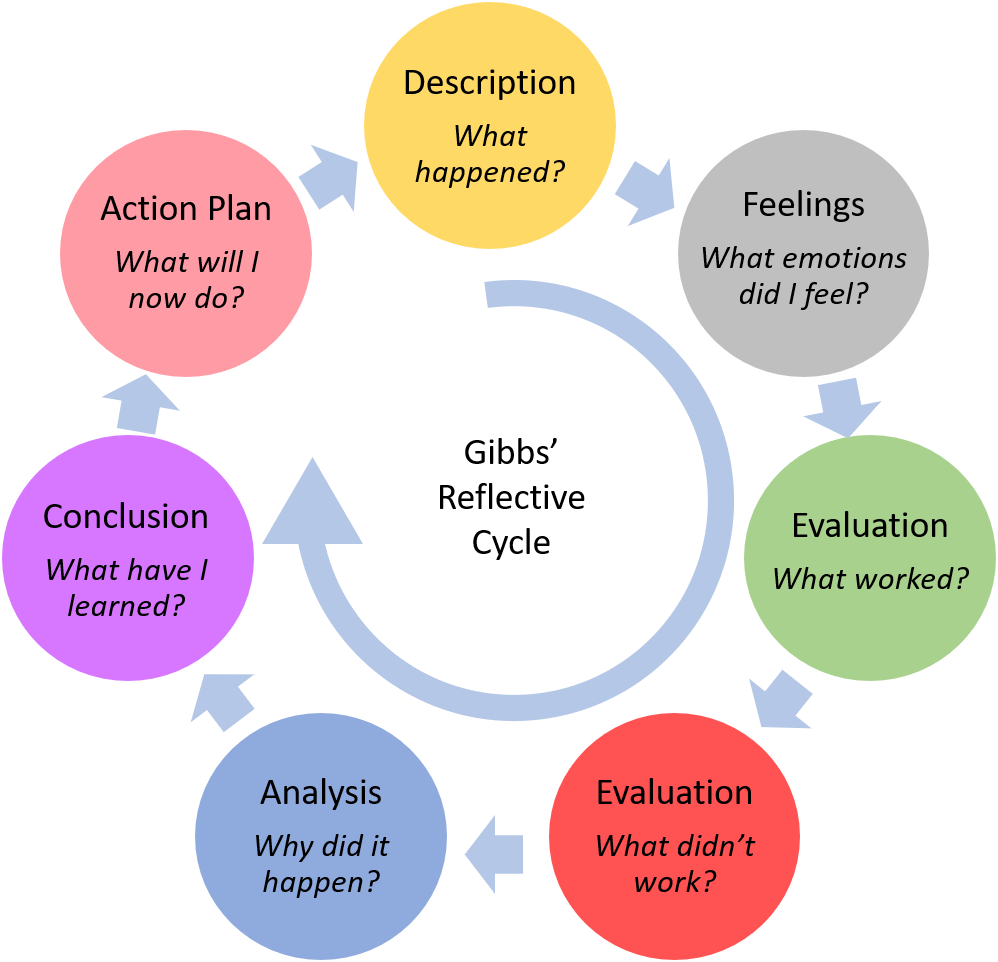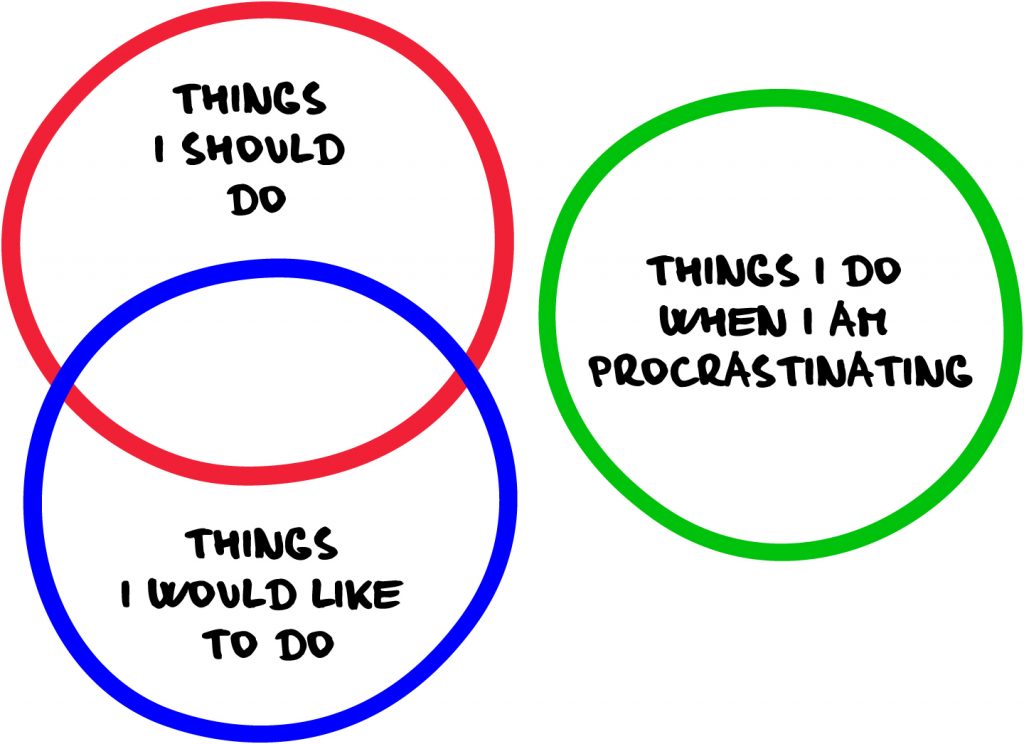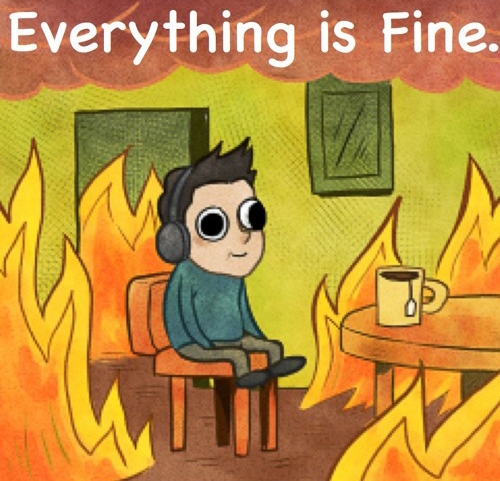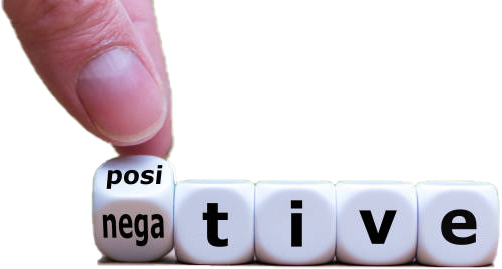Too Little, Too Late
Procrastination at its finest.
Procrastination. We hear it pop up in conversations regularly, particularly with students, but what exactly is it? The word ‘procrastination’ derives from the Latin word ‘procrastinare’ meaning “belonging to tomorrow” and is the act of deliberately delaying or postponing something. Hammer and Ferrari found that ‘about 20% of the general population is under the influence of chronic procrastination’ (2002), and in fact, students and young adults are even more affected by procrastination. Oram and Rodgers state that ‘procrastination is particularly prevalent in the post-secondary student population, with prevalence rates ranging between 70–95%’ (2022, 619).
What does procrastination have to do with work placement? I hear you ask. Well, I have always been a fantastic procrastinator, putting off revision, essays and even the most basic of tasks. In this blog I will be reflecting on my path to finding a work placement, considering my feelings, actions and the positive and negative impact of procrastination using Gibb’s reflective cycle.

89240~mv2.png/v1/fit/w_998%2Ch_962%2Cal_c/file.png
After choosing the Work-Based Learning module for my final year of my university degree I knew that I would need to find a company to do my work placement. Wanting to go down the route of film or television production, I aimed to get a placement with a company relevant to my career path and one that would allow me to develop skills and create contacts within the creative industry. Because of my procrastinating nature and having a very optimistic outlook, I told myself that it wouldn’t take long to secure a placement and that I didn’t need to worry about it for a while. I was wrong.

Weeks passed and I was yet to begin searching for a suitable work placement. As the deadline loomed closer, the fear of not having a placement job did not raise its head until it was too late. With under two weeks until the deadline I realised that I didn’t have much time and that I needed to act quickly. One question I have now whilst reflecting on this; if I knew I had to get a placement job, and I knew how important it could be for my future career, why did I do nothing about it until it was too late? Well, it seems that many people have the same issue. Dr Itamar Shatz stated that ‘Many procrastinators are aware of their behaviour and know that it’s bad for them, but keep doing it even though they want to stop’ (c2022).
Finally deciding to act, I sent out several emails to production companies across Northern Ireland. I listed my education and work experience in video and photography and I was hopeful that I would get at least one reply back. A few did reply to my emails, but unfortunately, they were unable to take on any placement students.
Hindsight is a wonderful thing
Looking back and reflecting on this period of the work-based learning module, I mainly have a feeling of regret and annoyance that I did not act sooner, putting in more effort to try and secure a work placement that relates more to my future career path. However, this spell of procrastination has had some positive outcomes too. The placement role I managed to get is with Queen’s University Modern Languages School, working on digital marketing and content creation. The role is allowing me to develop new skills and work on existing ones simultaneously. I am learning more on market research, have developed skills using Canva and have developed my team working and individual working skills throughout the weeks I have been with the University. Some would argue that procrastination itself can have positive outcomes. Harris and Sutton suggested that “procrastination might lead to positive outcomes for people in highly challenging jobs that require creative thought” (1983, 994).
I have always been aware that I often procrastinate over tasks, but I have never analysed this and explored why I do so. I feel like I put off tasks because I find I work better under pressure. Another reason that I think I procrastinate, and one that Dr Itamar Shatz (c2022) outlines is ‘task aversiveness’ – procrastinating due to finding a task to be frustrating, boring, or unpleasant in another way. It seems that there are several possible causes of procrastination and not each procrastinator is affected by the same thing. Low energy levels, a distracting environment, anxiety, low motivation. These are all potential causes of procrastination.
Looking at the ‘conclusion’ area of Gibb’s reflective cycle, there are a number of things I could have done differently. The main thing I needed to do was to be more organised and to stop delaying contacting businesses to inquire about a work placement. Setting small goals and reminders could have been a better way of going about searching for a placement. There are thousands of websites, apps and blogs explaining how to stop procrastinating and how to be more productive, but as I mentioned before, not every case of procrastination is the same. In the future I think it is important for me to look at why I am procrastinating, focus on the end goal and set smaller tasks for myself, hopefully then I can be more productive and not feel like I have done too little, too late… again.
Works Cited
Hammer, C. A., & Ferrari, J. R. 2002. Differential incidence of procrastination between blue and white-collar workers. Current Psychology, 21: pp. 333–338.
Harris, N. & Sutton, R. I. 1983. Task procrastination in organizations: A framework for research. Human Relations, 36: pp. 987–995.
Oram, R. and Rogers, M. 2022 ‘Academic Procrastination in Undergraduate Students: Understanding the Role of Basic Psychological Need Satisfaction and Frustration and Academic Motivation’, Canadian Journal of Education, 45(3), pp. 619–645.
Shatz, I. Solving Procrastination [Online]. [Accessed 20th November 2022] https://solvingprocrastination.com/why-people-procrastinate/
Start believing in yourself
You May Also Like

The World of Theatre upon Reflection
30 November 2022
Challenge Accepted Sir!
18 April 2023





